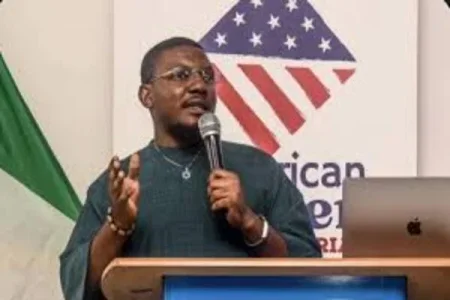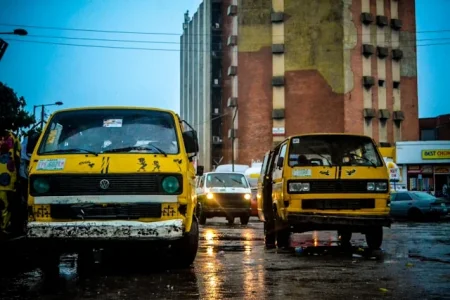
Nigerian investigative journalist Daniel Ojukwu's 9-day arrest by police for alleged cybercrime violations sparked protests over press freedoms. Police defended the arrest as lawful, claiming evidence against Ojukwu who faces prosecution. His release followed bail conditions, not protests, say authorities amid concerns over due process.
The arrest and nine-day detention of Daniel Ojukwu, an investigative journalist with the Foundation for Investigative Journalism (FIJ), has sparked widespread condemnation and renewed scrutiny of police practices in Nigeria.
Ojukwu went missing on May 1st, prompting concerns from family and colleagues when he could not be reached for three days. It was later revealed he had been arrested by the Nigeria Police Force (NPF) on allegations of violating the country's cybercrime laws. On May 9th, activists and civil society organizations protested Ojukwu's incarceration outside NPF headquarters in Abuja, the nation's capital. Their calls for his release intensified on social media.
The next day, May 10th, police released Ojukwu after nine days in custody, meeting bail conditions set by the court. However, NPF spokesperson Olumuyiwa Adejobi stated the journalist's release was unrelated to the protests, claiming it followed "due process."
According to Adejobi, Ojukwu was lawfully arrested on May 2nd under a court remand order. He alleged the journalist is under investigation for potential cybercrimes involving financial transactions and contract execution based on a complaint filed against him.
"With our preliminary forensic investigation, and recovery of some contents generated by the suspect, Mr. Ojukwu has a case to answer and as such will be arraigned in court upon conclusion of investigations," Adejobi stated. Ojukwu's detention, initially in Lagos before his transfer to Abuja, was standard procedure for cybercrime cases, the police claimed. They denied allegations of wrongful arrest or denial of bail.
The NPF spokesperson urged the public and media to avoid speculation that could jeopardize legal proceedings, vowing the force "remains steadfast in its duty to maintain law and order" while upholding justice. However, the journalist's prolonged incarceration and the limited information provided by authorities have stoked concerns over infringements on press freedoms and due process rights in Nigeria.




